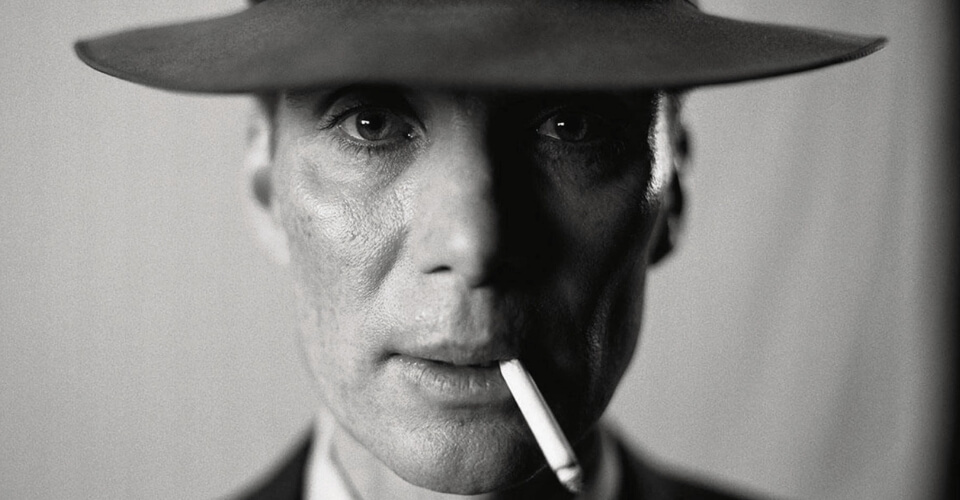Oppenheimer was released only a few days back, and needless to say, Nolan’s masterpiece has managed to live up to its hype! Since its inception, the movie has been making headlines and more so after its release.
Fans can’t stop but go gaga over this cinematic beauty, the brainchild of Nolan has impressed his fans all over the world more than ever!
With that, is it even a Christopher Nolan film if it doesnt make your brain cells work overtime? With the massive success, fans are also caught up with the intriguing climax of the film. Here’s our take on one of the best spine-chilling endings we’ve come across lately!
Oppenheimer Ending Explained
The cinematic masterpiece “Oppenheimer” delves far beyond Dr. Oppenheimer’s role in the creation of the two atomic bombs. This remarkable film takes us on a captivating journey through the intricate process of developing and constructing the bombs while also providing a fascinating glimpse into Dr. Robert Oppenheimer’s personal life. It is important to note that this exceptional movie is not solely focused on the Manhattan Project, as many might assume.
In the film, we see J. Robert Oppenheimer in charge of the Manhattan Project, leading to the development of the first atomic bombs in the world. In August 1945, the weapons were used against Japan in the bombings of Hiroshima and Nagasaki, which remain the only use of nuclear weapons in an armed conflict.
Upon the conclusion of the movie, the audience is left pondering over the psychological state of Oppenheimer. He identifies himself as the “destroyer of the world” owing to the catastrophic consequences of his invention.
Despite taking pride in the fact that his scientific innovation was instrumental in the mass destruction that killed thousands in Hiroshima and Nagasaki, he is also burdened with feelings of remorse. It is up to individual viewers to interpret his expression.
Nolan goes beyond the mass destruction caused by Oppenheimer’s invention, concluding the movie with a complex conversation involving Lewis Strauss, Einstein, and Oppenheimer.
It’s evident, historically and in the Nolan-directed film that both Oppenheimer and Strauss share a cold shoulder throughout their lives.
At the climax, we see Strauss asking Oppenheimer about that one particular incident when his conversation with Einstein made him almost speechless, so much so that as he left, he was at a loss for words and didn’t even look at Strauss.
The ending reveals that the conversation, however, had nothing to do with Strauss.
It is revealed in a scene when Einstein congratulates Oppenheimer on his success and his achievements. Despite this, Einstein also imparted to him that his triumphs would have a greater impact on others than on himself.
Later on, Oppenheimer confided in Einstein that the Manhattan Project’s potential to devastate the world was no longer mere speculation – it had already been accomplished.
This leaves Einstein devastated, at a loss for words. This is also a perception that brings Oppenheimer’s famous quote ‘destroyer of world” into perspective.
The end scene is cut to the launching of the nuclear bombs in Hiroshima and Nagasaki, as Oppenheimer’s quote has now turned into a reality; it indeed is the destroyer of the world. The end is as spine-chilling as it could get.
As we observe Earth from space, we witness distressing scenes of raging fires in certain regions. Additionally, the planet is being ravaged by the catastrophic effects of a nuclear war.
What Did Oppenheimer Do After the Atomic Bomb?
Following the detonation of the atomic bomb in Japan, Oppenheimer made the decision to step down from his position in the Manhattan Project.
Although he briefly resumed teaching at Caltech in 1945, he found that his passion for the role had diminished. Two years later, in 1947, he assumed the position of leader at the Institute for Advanced Study, which is situated in Princeton, New Jersey.
Additionally, he was appointed as the chair of the General Advisory Committee of the Atomic Energy Commission (AEC), serving in this capacity until 1952.
Back in 1954, there was a bit of controversy surrounding Oppenheimer. Concerns about his loyalty go way back to the 1930s when he was associated with Communist front groups and had connections to members of the Communist Party USA, including his wife and brother.
But despite all that, President Johnson actually gave Oppenheimer the highest honor the AEC can bestow, the Fermi Award, in 1963. He was even nominated for the Nobel medal three times, though he sadly never got it. Oppenheimer was diagnosed with throat cancer in 1965 and passed away in 1967.
Tell us how did you find the iconic movie! Do you think Oppenheimer has lived up to its hype? Are you also all praise for Cillian Murohy’s acting skills in the movie?
How did you react to its climax? Let us know below!

